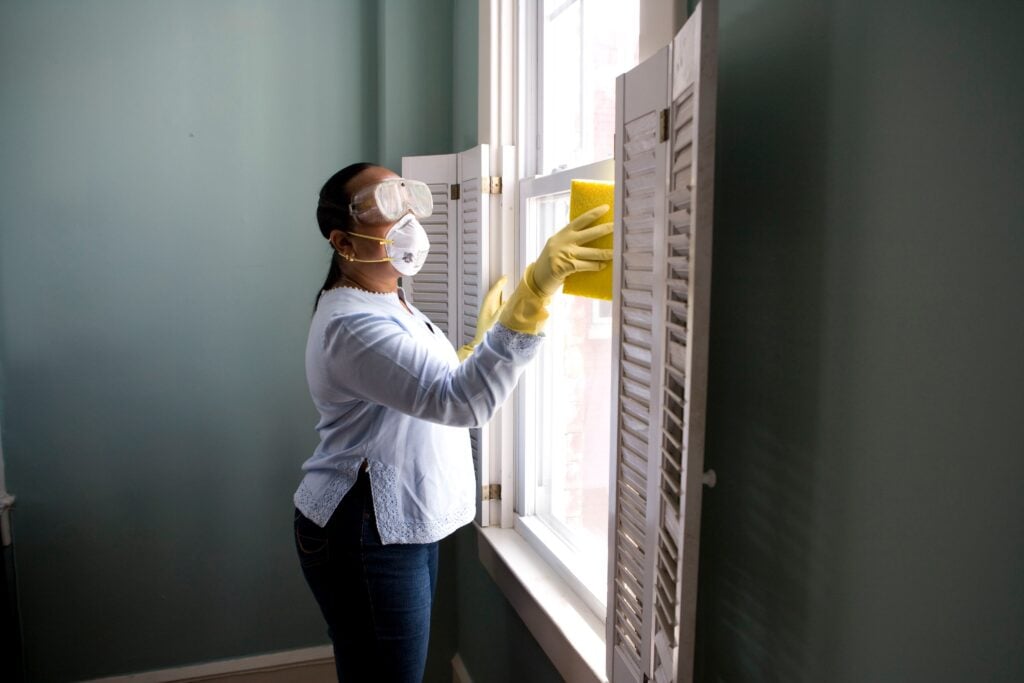Deprivation Of Assets To Claim Benefits
If someone is not willing to sell their house to pay for care home fees, there is an option of Deferred Payment Agreement according to which the homeowner signs a formal agreement with their local council. The local council agrees to bear the entire care home expense of the claimant until they are ready to sell their house or the property is sold after the death of the claimant.
If you want to check your eligibility for the DPA scheme, below is a list of key criteria to be met:
- your savings and capital are less than £23,250
- you have no other funds to pay for care home expense
- you are a homeowner or are able to offer any other asset as security
- in case of your home serving as security, it must be unoccupied
What Counts As Deprivation Of Assets To Claim Benefits?
When someone deliberately reduces their assets to avoid having to pay for care home fees and relying on the state to bear most (or all) of their care home expenditure, it is considered as “Deprivation of Assets”.
Since care home expenditure is means-tested local councils conduct a financial assessment of individuals claiming care home residency, taking into account all of the savings, capital and incomes of claimants. This helps them decide upon the amount that the care home resident is expected to contribute towards their care and the amount that is due upon the state.
If the claimant is found to have (a) disposed of assets whether, through sale or gift to immediate family (b) without being able to prove intention other than avoidance of care home fees, this act will be classified as deprivation of assets.
While carrying out a financial assessment, local council authorities conduct their own investigations to confirm the data provided by claimants. If they find out that there has been a deliberate deprivation of assets, they have the authority to assign the proportion of the claimant’s contribution towards care home fees including the assets (whether cash in savings or property) that they have disposed of.
While most individuals consider that transfer of savings, selling of one’s property or gifting their home to a family member is all that counts as deprivation of assets, that is not all. Any of the following actions will be counted as deprivation of assets if it takes place within a short period of time prior to one’s claim for care home residency:
- To give away a large sum of money
- To transfer the title deed of one’s property
- To spend a large amount of money which is in contrast with the spender’s usual spending pattern
- To lose money through gambling
- To use savings in order to purchase items excluded from a means-test such as a car or jewellery
Similarly, should the claimant have already moved into the care facility and there has been a lapse a time when the discovery of deprivation of assets is made, the claimants will be required to pay the differential in the amount due upon them had their assets been taken into consideration when the initial assessment was made. In certain cases when deprivation of assets has been proven, social services have been known to recover the assets transferred to a family member and at times, they have refused to cover care home costs.
However, if the disposing of assets prior to care home residency is merely a coincidence and a care home claimant finds themselves incorrectly charged with deprivation of assets, they may challenge the decision of local authorities and file for an appeal. Some key facts and a list of suggested advisors are available here: Factsheet 40 – Deprivation of assets in social care
For a detailed understanding of the topic, we will explore the following areas:
- How Important Is Claimant’s Property For Care Home Fees?
- How To Reduce Assets To Avoid Care Home Fees?
- What Is An Assets And Income Assessment For Care Home Fees?
- How Much Savings Can You Have Before You Have To Pay For Care?
How Important Is Claimant’s Property For Care Home Fees?
One’s home is considered to be the most important part of capital when budgeting care home fees. While the residential property owned by a claimant is considered as capital, however, in case their house is occupied by any of the following, residents, the premises may not qualify to be accounted for in a means test:
- spouse/civil partner/unmarried partner
- a close relative over 60 years of age
- a close relative below 16 years of age (legal dependant)
- former spouse or partner if they are a single parent
This is called property disregard.
Once an individual qualifies for funding from local authorities, they design a personal budget for them according to which the following criteria is decided:
- the total cost of claimants’ needs
- the amount of contribution to be made by the claimant
- the amount of contribution to be made by the local council
If the results of someone’s assets and income assessment reveal low income, low capital or low savings, council authorities will increase their contribution towards their care home fees. In some cases especially when an increase in the claimant’s income or assets is expected, even if the council bears their expense in the short term, they will design a recovery plan for the future.
If the claimant has no savings or capital yet they are a homeowner, the council will consider recovering the expense from the proceeds of the sale of the house. This is called a deferred payment and may be considered when the applicant has a capital of around £23,250 (excluding the value of their house).
How To Reduce Assets To Avoid Care Home Fees?
If someone wishes to reduce their assets with the aim to reduce (or completely avoid) paying for their care home fees, they can use any of the following options:
- Care Annuity: This is an insurance policy that helps to pay for long-term care home expenses.
- Deferred payment schemes: These are schemes are offered by local authorities to serve as a convenient and flexible means to pay for long-term care home fees.
- Equity release: This includes the release of equity in one’s home to pay for care home fees.
- Rental income: This means to rent out one’s property with the aim to generate sufficient income to pay for care home fees,
Certain individuals choose to gift their property to their children in order to avoid its inclusion in their financial assessment for care home fees contribution. However, if this grant proves to be a deliberate reduction in assets to avoid care home fees, local council authorities can consider this as deprivation of assets and reclaim the assets.
Another option is to transfer your assets to a trust rather than an individual. In this case, there will be a group of individuals considered as a trust to whom the property’s ownership is entrusted with. While this is a feasible option in case of having a legal dependant or a minor who may benefit from the act, however, if it is used to simply avoid care home fees, there are many risks attached. It is advisable for claimants to seek professional financial advice prior to any decision regarding their property.
What Is An Assets And Income Assessment For Care Home Fees?
Assets and income assessment is a means-based test conducted by local councils to calculate the amount of care home fee that a claimant will be able to contribute considering their financial status, as the council will be bearing the remainder of the expenses. For this purpose, the income, savings and capital of the claimant will be taken into account.
State Benefits such as Attendance Allowance and Pension Credit will be counted as income. However, in the case of Disability Allowance, there will be no accountability for the same.
Based upon the financial assessment of claimants, they will then be categorised into one of the following slots so that local authorities may decide upon the claimant’s contribution towards their care home fee as well as the amount due on the state:
- If someone has savings over £ 23,250, the claimant will have to bear the entire cost of the care home fees
- If someone has savings of £14,250–£23,250, the claimant will have to contribute most of their weekly income towards care home fees. They will also pay an assumed extra amount of £1 per £250 of capital that they have
- If someone has savings below £14, 250, the claimant will not be required to pay for their care home fees from this amount and will have to pay from their weekly income.
How Much Savings Can You Have Before You Have To Pay For Care?
If you are a UK resident, the amount of savings you can have before having to contribute towards a care home fee depends on whether you live in England, Wales, Northern Ireland or Scotland. Below is the threshold for each country:
- England: £23,250
- Wales: £50,000
- Northern Ireland: £23,250
- Scotland: £28,750
Anyone who holds savings above this amount will have to contribute towards their care home fees until their savings fall below this threshold. When that homes, claimants will be able to receive financial aid from the state through their local councils.
Additionally, claimants are permitted to keep a weekly allowance of £24.90 per week for themselves before paying for the care home fee. People who are on pension credit will be allowed an additional weekly amount of £5.75.
Conclusion:
Care costs are means-tested. This means that this is a decision taken after a detailed financial assessment of the eligible individual. To reduce their self contributions, individuals have considered reducing the value of their assets by either selling their property or gifting it to close relatives. However, it is not advisable to do so as it comes under the deprivation of assets and can negatively impact one’s benefits.
The good news for claimants is that according to a recent announcement by the UK Government, with effect October 2023 nobody will have to pay more than £ 86,000 as a care home fee. Once they have paid the amount, the remaining expense will be borne by the state and funded through their local council authorities.
FAQs: What Counts As Deprivation Of Assets To Claim Benefits?
Is buying a house classed as deprivation of capital?
No, buying a house is not classed as deprivation of capital as it will still be included in your financial assessment for care home contribution.
Will assets affect my benefits?
If the local council finds evidence to prove deprivation of assets, it will affect your benefits as you will lose a major proportion of them. This is called notional capital, which is added to one’s means-test since it has been proven that the claimant deliberately deprived themselves of it to avoid having to pay care home fees.
How much money can you have in the bank and still claim benefits UK?
While each benefit has an upper and lower limit to assign the extent of facility extended towards claimants, generally speaking, anyone with less than £6,000 in the bank will be able to claim full benefit. The amount of benefits decreases as savings in the bank increase.
Does a gift of money affect your benefits in the UK?
No, a one time gift of money from friends or family does not affect your benefits.
What happens if you inherit money while on benefits?
If you inherit money as a one-off payment it will be added to your assets and included in the means-testing for a claim of benefits. If the inheritance is in the form of an annuity that is paid to you on regular basis, it will be counted as your income and will reduce your benefits.
References:
Factsheet 40 – Deprivation of assets in social care
How to protect my property against care home fees
Gifting assets or property to avoid care fees
Deprivation of assets | Social care means tests
Financial Assessment for Care Home Fees Explained – carehome.co.uk
Who Pays for What in 2021/22? – carehome.co.uk advice
Paying care home fees | Social care means tests
Paying for your own social care (self-funding)
Paying your own care costs if you’ve used all your savings
How To Avoid Selling Your Home To Pay For Care…
Do I have to sell my home to pay for residential care?
Paying for permanent residential care | Paying for a care home



